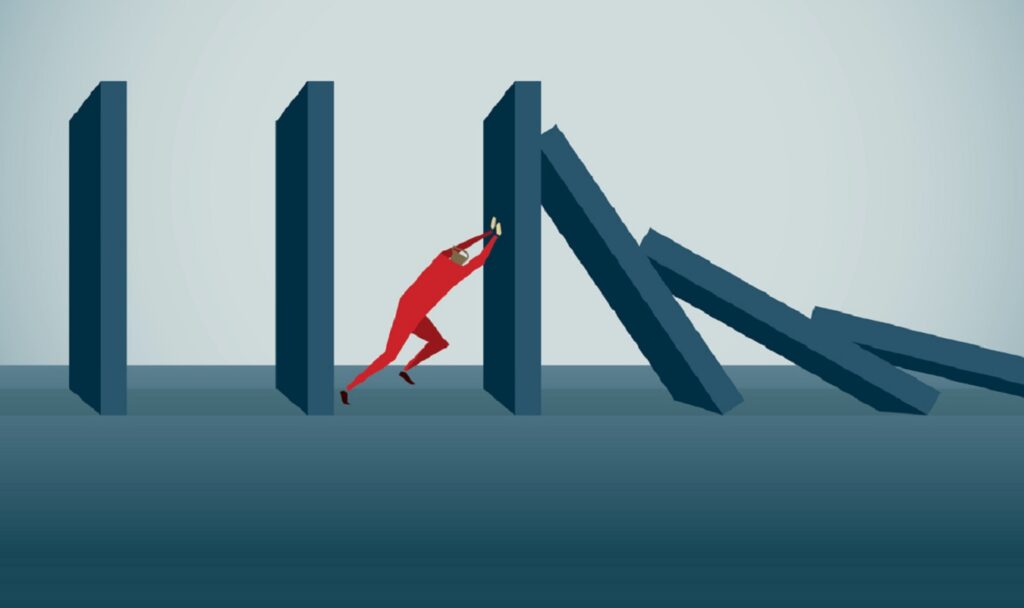How resilient are you? A friend of mine was asked this question in an interview recently. It is a difficult one to answer and – put on the spot – we would all answer that resilience is, of course, one of our biggest assets. But is it? For all of us? Right now, it needs to be.
Political uncertainty is asking the resilience question of Britain and the British economy. We live in ambiguous and challenging times. The country is made up of the people that live and work in it, so in order for Britain to stay resilient, we must all be resilient too.
There are three questions to ask yourself to test that resilience:
1. Are you proactively resilient?
Historically there has been a lot of focus on how to battle your way out once you find yourself in a stressful situation, or how to bounce back when you feel like you’re almost at rock bottom.
And whilst these strategies are often great, prevention over cure is far more effective, so being proactive rather reactive in managing your resilience is key.
2. Do you have sufficient protection factors?
In the same way that we wouldn’t go out in the blazing sunshine all day without applying SPF, we can’t expect to be resilient if we don’t apply some sort of protection to our everyday lives.
Our protection factors are what allow us to be proactive in developing resilience, and come in the form of physiological and psychological actions.
3. Is your bucket of resilience full?
I like to think of resilience as being a limited resource that we carry around with us, like a bucket of water.
All day long, things will kick holes in our bucket of resilience, whether it be a difficult conversation with someone, a seemingly unachievable task list, ongoing family issues, health worries…the list goes on.
Ensuring we keep a decent level of resilience in our buckets will mean we are ready to take on life’s challenges and bounce back faster and more easily from setbacks.
Three things you can do to improve your resilience:
1) Focus on the small wins
In order to proactively manage your resilience, it is important to focus on daily habits and practices that can be woven into your existing routines and that are sustainable.
Trying to change everything about your lifestyle and outlook on life overnight is never going to make you more resilient, if anything it will do the opposite, but ensuring you get to bed an hour earlier each night is an example of a habit that is achievable and will go a long way to boosting your resilience.
Make small changes and build on them over time: it is amazing how the small things lead to much greater positive impacts in the long run.
2) Never forget your health
It sounds simple, but ensuring you get plenty of sleep, eat well and exercise means your physiological protection factors are taken care of, and your resilience will be boosted enormously. Team with that a focus on your psychological protection factors, and you will be the most proactively resilient version of yourself.
Your levels of optimism, seeking help and support from others, your attitude towards change, setting clear personal and professional goals for yourself, being creative in solving problems and boosting your own self-belief are some of the things to focus on if you are to develop psychological protection factors.
There are some great tips and guidance online for developing these psychological protection factors once you have identified the areas in which you need to prioritise.
3) Identify your holes and your energy creators
It is inevitable that you will always have some holes in your bucket of resilience. Some of these holes can be plugged straight away if we just take the time and effort to identify strategies for doing so. Others, however, cannot be fixed so easily or quickly, and will continue to act as drains to our resilience for some time.
Therefore, it is crucial to identify what ‘tops up’ your resilience so your bucket doesn’t drain out, and this varies from person to person. It may be that time with loved ones, meditation or yoga are real boosts for some, while trips to the cinema, time at home or a daily walk are top ups for others.
Identifying your own resilience drains and boosters, and taking the time to ensure you are focusing on either plugging the drains or doing more of the boosters, will instantly increase your resilience.
So do not wait until you are put on the spot in an interview to question how resilient you are. Start exploring your own resilience levels and develop strategies for increasing them straight away. Britain needs you.











